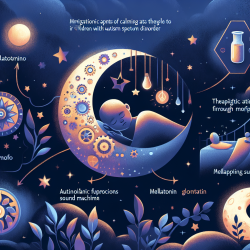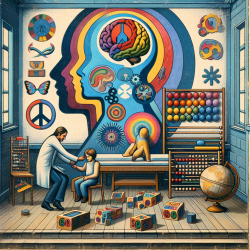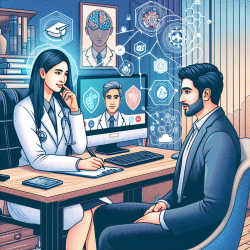Autism Spectrum Disorder (ASD) is a neurodevelopmental condition marked by complex neurobehavioral syndromes, including disrupted sleep and altered autonomic functions. A recent review, "Biological correlates of altered circadian rhythms, autonomic functions and sleep problems in autism spectrum disorder," offers critical insights into these issues and suggests potential therapeutic strategies. This blog explores how practitioners can leverage these findings to enhance outcomes for children with ASD.
Key Findings and Their Implications
Sleep Problems in ASD
Research consistently shows that children with ASD experience significant sleep disturbances, including:
- Insufficient sleep time
- Bedtime resistance
- Reduced sleep pressure
These issues are linked to irritability, deficits in social skills, and behavioral problems. Addressing sleep problems can therefore improve overall quality of life and social functioning in children with ASD.
Biological Underpinnings
Several biological factors contribute to sleep disturbances in ASD:
- Genetic Factors: Alterations in genes regulating circadian rhythms, such as CLOCK and PER1, are common in ASD.
- Melatonin Levels: ASD individuals often have disrupted melatonin production, affecting sleep and other physiological functions.
- Autonomic Dysregulation: ASD is associated with a hyper-sympathetic state and altered heart rate variability, impacting sleep quality.
Therapeutic Approaches
Melatonin Supplementation
Melatonin has shown promise in improving sleep parameters in children with ASD. Studies indicate that melatonin supplementation can:
- Reduce sleep onset latency
- Increase total sleep duration
- Improve daytime behaviors
Despite these benefits, standardized protocols and further research are needed to confirm its efficacy across diverse populations.
Behavioral Interventions
Behavioral strategies, such as sleep hygiene practices and structured bedtime routines, can also be effective. Combining these with melatonin supplementation may offer synergistic benefits.
Pharmacological Interventions
Beyond melatonin, other pharmacological options include:
- Ramelteon, a melatonin agonist
- Agomelatine, which has shown efficacy in improving sleep stability
- Donepezil, which may enhance REM sleep
These treatments require further validation through larger, controlled studies.
Call to Action
Practitioners are encouraged to integrate these findings into their therapeutic strategies to improve sleep and overall functioning in children with ASD. Additionally, ongoing research is crucial to refine these approaches and explore new therapeutic avenues.To read the original research paper, please follow this link:
Biological correlates of altered circadian rhythms, autonomic functions and sleep problems in autism spectrum disorder.










